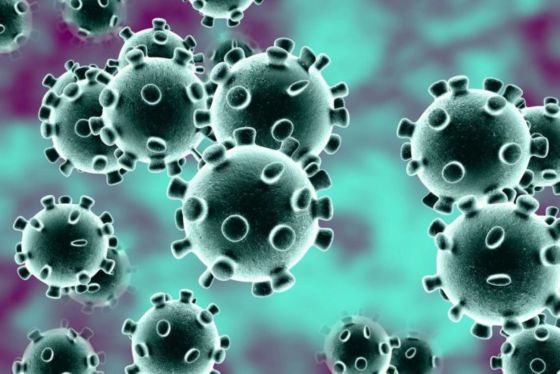By Jeph Ajobaju, Chief Copy Editor
China, where coronavirus began, has the highest rate of 80,894 cases and 3,237 deaths, as the pandemic spreads worldwide taking a total 7,500 lives so far.
Italy ranks second with 31,500 cases and 2,503 deaths; and Iran third with 16,000 cases and 988 killed.
Authorities in 155 countries and territories have reported new coronavirus cases worldwide after China reported its first cases to the World Health Organisation (WHO) in December 2019.
More than 185,000 people have since been infected worldwide, according to WHO.
Nigeria has recorded eight cases and one death.
China re-opened its cross-border trade site with Kazakhstan on March 15, at a time many countries are closing theirs for fear of the contagious virus.
Even friendly Canada has shut its borders to travellers, except Americans. The European Union (EU), the champion of free movement, has also closed for 30 days its borders to travellers from outside its block of 26 countries.
The article below, culled from The Guardian (UK), narrates the origin, spread, and prevention against the mysterious coronavirus (also called Covid-19 virus) that has, in three months, wrecked social and economic activities across the world.
What is Covid-19 – the illness that started in Wuhan?
It is caused by a member of the coronavirus family that has never been encountered before. Like other coronaviruses, it has come from animals.
What are the symptoms this coronavirus causes?
The virus can cause pneumonia. Those who have fallen ill are reported to suffer coughs, fever and breathing difficulties. In severe cases there can be organ failure.
As this is viral pneumonia, antibiotics are of no use. The antiviral drugs we have against flu will not work. Recovery depends on the strength of the immune system.
Many of those who have died were already in poor health.
Is the virus being transmitted from one person to another?
China’s national health commission confirmed human-to-human transmission in January, and there have been such transmissions elsewhere.
How to protect yourself
Wash your hands: wet your hands with clean, running water. Apply soap. Lather your hands, including the backs, between your fingers, and under your nails. Scrub for at least 20 seconds. Rinse.
Why is this worse than normal influenza, and how worried are the experts?
We don’t yet know how dangerous the new coronavirus is, and we won’t know until more data comes in.
Seasonal flu typically has a mortality rate below 1 per cent and is thought to cause about 400,000 deaths each year globally. Sars had a death rate of more than 10 per cent.
Another key unknown is how contagious the coronavirus is.
A crucial difference is that unlike flu, there is no vaccine for the new coronavirus, which means it is more difficult for vulnerable members of the population – elderly people or those with existing respiratory or immune problems – to protect themselves.
Hand-washing and avoiding other people if you feel unwell are important. One sensible step is to get the flu vaccine, which will reduce the burden on health services if the outbreak turns into a wider epidemic.
Have there been other coronaviruses?
Severe acute respiratory syndrome (Sars) and Middle Eastern respiratory syndrome (Mers) are both caused by coronaviruses that came from animals.
In 2002, Sars spread virtually unchecked to 37 countries, causing global panic, infecting more than 8,000 people and killing more than 750.
Mers appears to be less easily passed from human to human, but has greater lethality, killing 35 per cent of about 2,500 people who have been infected.
What do we know about the Covid-19 virus now?
The Covid-19 virus is a member of the coronavirus family that made the jump from animals to humans late last year.
Many of those initially infected either worked or frequently shopped in the Huanan seafood wholesale market in the centre of the Chinese city of Wuhan.
Unusually for a virus that has made the jump from one species to another, it appears to transmit effectively in humans – current estimates show that without strong containment measures the average person who catches Covid-19 will pass it on to two others.
The virus also appears to have a higher mortality rate than common illnesses such as seasonal flu.
The combination of coronavirus’s ability to spread and cause serious illness has prompted many countries, including the UK, to introduce or plan extensive public health measures aimed at containing and limiting the impact of the epidemic.
How can I stop myself and others from getting infected?
- Wash your hands with soap and water for at least 20 seconds and do this often, including when you get home or into work.
- Use hand sanitiser gel if soap and water are not available.
- Avoid touching your face.
- Cough or sneeze into a tissue or the crook of your elbow (not your hand) and put used tissues straight in the bin.
- Avoid close contact with people who are showing possible symptoms.
How can you tell the difference between flu and Covid-19?
The coronavirus outbreak hit amid flu season in the northern hemisphere and even doctors can struggle to distinguish between the two – the overlap in symptoms probably contributed to slow detection of community infections in some countries, including Italy.
- Typical flu symptoms, which normally come on quickly, include a high fever, sore throat, muscle aches, headaches, shivers, runny or stuffy nose, fatigue and, more occasionally, vomiting and diarrhoea.
- Doctors are still working to understand the full scope of symptoms and severity for Covid-19, but early studies of patients taken to hospital found nearly all of them developed a fever and dry cough, and many had fatigue and muscle aches.
- Pneumonia (lung infection) is common in coronavirus patients, even outside the most severe cases, and this can lead to breathing difficulties.
- A runny nose and sore throat are far less common, reported by just 5 per cent of patients.
- The only real confirmation of having Covid-19 is taking a test though.
What should I do if I have symptoms?
A large study in China found that about 80 per cent of confirmed cases had fairly mild symptoms (defined as no significant infection in the lungs).
About 15 per cent had severe symptoms that caused significant shortness of breath, low blood oxygen or other lung problems, and fewer than 5 per cent of cases were critical, featuring respiratory failure, septic shock or multiple organ problems.
However, it is possible that a larger number of very mild cases are going under the radar, and so this breakdown in severity could change over time as wider screening takes place.
Older people and those with respiratory problems, heart disease or diabetes are at greater risk.
What is the mortality rate of the new coronavirus?
It is probably about or a bit less than 1 per cent. Much higher figures have been flying about, but British Chief Medical Officer, Chris Whitty, is one of those who believes it will prove to be 1 per cent or lower.
WHO Director General, Tedros Ghebreyesus, talked of 3.4 per cent, but his figure was calculated by dividing the number of deaths by the number of officially confirmed cases.
We know there are many more mild cases that do not get to hospital and are not being counted, which would bring the mortality rate significantly down.
Deaths are highest in the elderly, with very low rates among younger people, although medical staff who treat patients and get exposed to a lot of virus are thought to be more at risk.
But even among the over-80s, 90 per cent will recover.
Can you get infected on public transport?
Most infections happen in families, where people live at close quarters. You need to be within one to two metres of somebody to be infected by viral-loaded water droplets from their coughs or when they are speaking.
That is less likely on public transport.
However, it would be possible to pick up the virus on your hands from a surface that somebody with the infection had touched.
The virus can linger for 48 hours or even possibly 72 hours on a hard surface, such as the hand rail in the tube – though less time on a soft surface.
That is why the advice is to wash your hands regularly and avoid touching your face, to prevent the virus getting into your nose, mouth or eyes.
Is there a cure for Covid-19?
Not at the moment, but drugs that are known to work against some viruses are being trialled in China, where there are thousands of patients, and new trials are starting in the United States and other countries.
Large numbers are needed to find out whether they work in a few people or a lot of people or nobody at all.
The most hopeful drugs are Kaletra, which is a combination of two anti-HIV drugs, and remdesivir, which was tried but failed in Ebola patients in West Africa in 2013 and 2016.
Some Chinese doctors are also trying chloroquine, an antimalarial drug, which is off-patent, therefore cheap and highly available, and would be very useful in low-income countries.
The first results are expected in mid-March and should indicate if the drugs will at least help those who are most severely ill. A miracle cure is not expected.
When will we get a vaccine?
Efforts to develop an effective vaccine for Covid-19 have been quick compared with historical epidemics, such as Ebola. A number of teams are already testing vaccine candidates in animals and preparing to carry out small trials in people.
The US company, Moderna Therapeutics, is already recruiting and hopes to enrol 45 volunteers between 18 and 55 and launch the trial by the end of April.
Phase one trials like this look at whether the vaccine triggers an immune response and whether the given dose causes adverse effects and could be completed quite quickly.
However, the subsequent phases, which will involve thousands of volunteers and will look more closely at efficacy, will take longer and obtaining a commercially available vaccine within a year would be extremely quick.
British Chief Scientific Adviser, Patrick Vallance, said he did not think a working vaccine to protect people from the coronavirus would be produced in time for the current outbreak, but that a timeframe of a year or 18 months “was not unreasonable to assume”.













